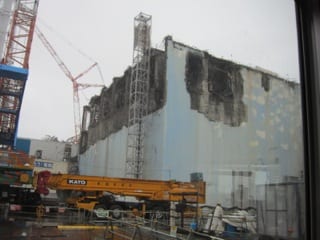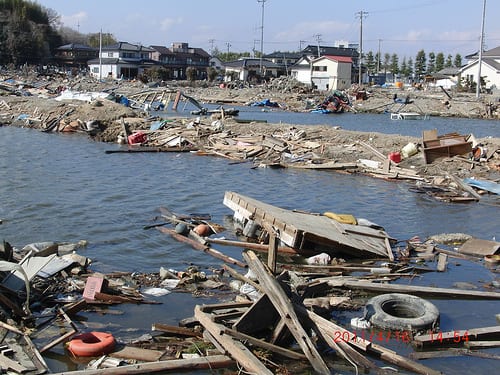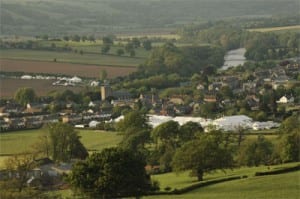Risk and resilience in Japan after the Fukushima disaster
By Oli Usher, on 22 November 2013
There is no amount of concrete that could have kept people safe from the 2011 Japanese tsunami – and in any case, the height of the wave could never have been predicted. But learning the right lessons from past disasters, along with a helping hand from technology, could help keep us safer in the future.
That was the message delivered by Prof Peter Sammonds (UCL Institute of Risk & Disaster Reduction) in Tuesday’s Lunch Hour Lecture.
Japan is, in many ways, an ideal place to learn from in the field of natural disasters. A prosperous, well-governed and highly educated nation, it also has a long history of dealing with natural hazards, particularly earthquakes and tsunamis. The successes and failures of disaster management in Japan over the past century offer a rich vein of data for researchers like him to mine.
The key lesson, he argued, is to understand the complexity of disasters and how one calamitous event can cascade in fundamentally unpredictable ways.
 Close
Close





